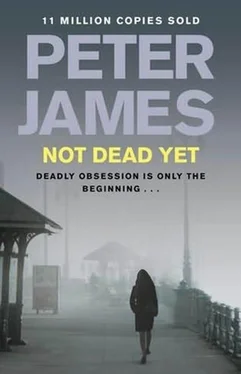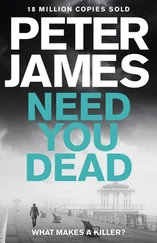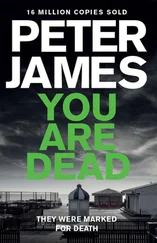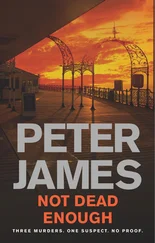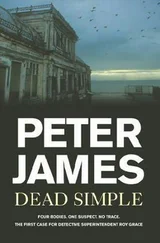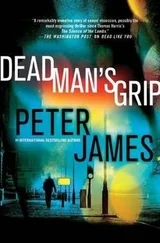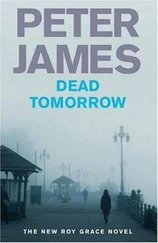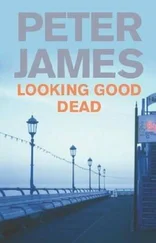‘Actually, no it isn’t!’ a tall man in a business suit said, walking across to them. ‘I’m David Barry, the Curator of this building. It’s very interesting, but George wasn’t at all happy sitting at this table – he was always terrified the chandelier was going to come crashing down.’
All of the team looked up at it. ‘I don’t think there’d be much left of anyone that landed on,’ Jordan said.
‘Quite!’ the Curator agreed. ‘It weighs just over a ton and a quarter!’
‘How do you keep it clean?’ someone asked.
‘It’s done every five years,’ he replied. ‘It has fifteen thousand individual glass drops, or lustres, each of which has to be removed, washed, polished and put back.’
‘Hope it’s – ah – well supported,’ Brooker said, only half in jest.
The Curator nodded. ‘It is indeed. Queen Victoria was concerned about its safety, and had new supports constructed in what was one of the first introductions of aluminium to this country – it was the strongest material in the world at that time.’
No one noticed the tall, gaunt man in a wet mackintosh, with a camera slung around his neck, carrying a small umbrella in one hand and a Royal Pavilion brochure in the other, who appeared to be admiring a painting on the wall. But he wasn’t remotely interested in the picture. He was listening to their conversation.
Tommy Fincher’s wake had been going on for over three hours now in the upstairs private room of the Havelock Arms. But Roy Grace didn’t mind the wait. He sat patiently in his car across the road from the pub, in the pelting rain and failing light, making calls and emailing on his BlackBerry. And watching. He hoped it would continue for a couple of hours yet. The darker the better.
It was no surprise this establishment had been chosen for the wake. It was one of the city pubs where villains were known to hang out. He’d recognized at least fifteen familiar faces arriving, all of them frequent fliers with Sussex Police. A couple were huddled half in and half out of the doorway now, having a smoke. Inside they’d be drinking their respects to Fincher – and no doubt networking. None of them trusted each other, but the turf wars of old, slugged out in the streets and alleyways of this city with knuckle dusters, razor blades and bottles of acid, had for decades now been a thing of the past. These days the local villains had bigger problems to worry about than each other. Encroachment by the Chinese triads and the Albanian and Russian Mafias was already hitting the pockets of British criminals hard. The drugs trade, prostitution, porn, contraband booze and cigarettes, fake designer goods, and the growing business in internet scams, were all markets being taken over by invisible poachers with even more brutal reputations than their local counterparts, and mostly offshore bases.
In that respect, Brighton and Hove had been fortunate. The city did not have the gun and knife crime that blighted so many places in the UK. But Grace was ever wary that nothing stayed the same, and you could never afford to be complacent.
He couldn’t afford this time he was spending tonight either, but in truth he was rather enjoying himself. This was taking him back to his early days in the CID, when he’d spent two years on a surveillance team, much of that following and watching known local drugs dealers – several of whom were here today. He’d once spent thirty-six hours sitting inside a specially converted fridge in the back of a rusty old delivery van. It was made to look like it had been abandoned, but had actually been carefully sited a short distance along the street from a suspected drug dealer’s house in Moulsecomb. Grace had been there round the clock, with a supply of food and water, unable to step out, having to relieve himself into metal containers, filming the comings and goings through a spy hole in the side of the vehicle.
It was in that fridge that it had first occurred to him that being a detective was like fishing, that you needed a lot of patience to land a big fish, an analogy he used today whenever he did training work with student detectives.
He looked at his watch. 8.35 p.m.
Among the faces he had not been surprised to see was a real old lag, Darren Spicer. A career burglar, in his early forties but looking a couple of decades older. There weren’t many night-time – or creeper – burglars left these days, fortunately, Grace thought. They could make more money far more easily as drug dealers or internet fraudsters. In recent years Spicer would probably have been one of Tommy Fincher’s best customers – when he wasn’t inside.
He was distracted from his thoughts by a track that had begun playing. ‘Mr Pleasant’ by the Kinks. He had long thought this group wrote some of the greatest lyrics of all time, and this particular song was one of his favourites. It had a sinister, nasty undertow that perfectly suited the assembled company across the road, behind that steamed-up first-floor window. And in particular, one man. Smallbone.
Mr Pleasant .
Or rather, Mr Unpleasant… Grace thought. He could smell sweet whiffs of the cigarette smoke from across the road, and suddenly really fancied one himself. And a drink to go with it, a malt whisky – or maybe a cold lager because he was thirsty. But no chance of either; he daren’t risk leaving the car and missing his target, and he hadn’t any cigarettes with him.
He was also hungry, having missed lunch because he’d worked flat out on preparing some extra documents the prosecuting counsel had requested for the Venner trial, needing to get them despatched before heading to the funeral. The only thing he had in the car was a KitKat which had been in the glove locker for months; the chocolate had gone all lumpy from having melted several times in the sun, and was covered in white speckles. He took the wafer bar out, removed some of the foil and bit a piece off. It tasted stale and crumbs dropped in his lap. But he needed to eat something, and he could be here a long while yet, so he forced it down, grimacing with each fresh bite, and cursing for not having planned ahead.
But in reality he’d had no plan, other than cancelling tonight’s briefing on Operation Icon because of Glenn’s absence, and to free himself up. He had just intended turning up at the funeral to find Smallbone, but without having decided how he would confront him. Anger at the man was pent up inside him. A deep rage at what he had done – or had arranged for someone to have done – to Cleo’s car. He was in danger of doing something stupid and he knew he needed to keep a lid on it somehow. But he wasn’t sure, when he finally met Smallbone face to face tonight, whether he would be able to. No one was ever, ever, ever going to threaten or scare his beloved Cleo.
A young couple hurried past, both of them laughing at something, and disappeared up the street. He glanced at the car clock then at his watch. In just over twenty minutes’ time, the live Crimewatch broadcast would be starting at the dedicated BBC studio in Cardiff. At some point during the hour, Glenn Branson would be speaking on air, presenting the case. Immediately afterwards Glenn and Bella Moy would man the phones in the studio, on the number Glenn had given out. They would remain there until midnight following the live update programme at 10.45. Then they’d be staying at a hotel in Cardiff and taking the train back to Brighton in the morning. Grace knew the procedure, he’d done it several times. It was one of the best possible resources for an enquiry, almost always yielding an immediate response from the public and, frequently, positive leads. He dialled Glenn’s number, but his phone was off.
He left him a voicemail wishing him luck. He knew how Glenn would be feeling right now. He’d be in the green room, with Bella and the other guests on the show, throat dry, nervous as hell. That was how he always felt himself before going on live television. It was impossible to feel any other way – you had one chance and blowing it was not an option, and that feeling of responsibility always got to you.
Читать дальше
